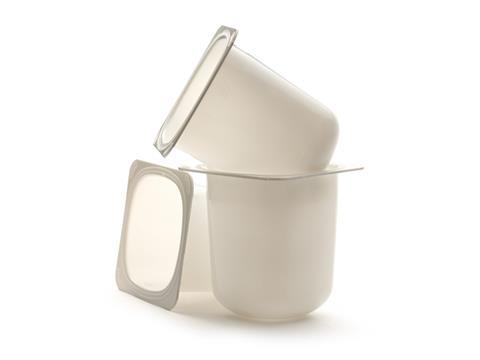
It’s a question we’ve explored several times over the past few months – and one that Styrenics Circular Solutions aims to answer in an upcoming webinar to take place this Wednesday, 30th June. SCS has taken large strides to dispel the common perception of polystyrene (PS) as something that cannot be recycled or play a key role in a circular economy. Most recent of these was a successful LCA undertaken by the leading research institute Neue Materialien Bayreuth GmbH (NMB).
When it comes to circularity, the biggest challenge for any material is perhaps achieving food contact. The upcoming webinar will clearly highlight the progress that has been made towards this ultimate aim, taking in chemical recycling via depolymerization, as well as more traditional mechanical recycling. For the latter, SCS has already filed its first application for EU food contact authorization and is waiting for the verdict on this.
There are of course other favourable attributes which makes PS, according to SCS, ideally suited to meet EU policy goals, including:
- excellent suitability for dissolution;
- low ceiling temperature and easiest mass polymer to be chemically recycled; no other mass-produced polymer can be broken down so easily to its original monomer, with only one step required;
- rPS behaviour as a drop-in for converters/ brand owners.
- light weight to help minimize emissions during transport.
But statements alone are not enough: more than ever, we need facts and evidence to support circularity claims - hence the recent LCA performed by NMB, which focused on closed loop recycling routes back to food contact quality and found that:
- High purity mechanical recycling of polystyrene feedstock from separate collection saves approx. 80% of CO2 emissions compared to incineration and conventional production of virgin polystyrene.
- Dissolution technology exhibits 75% CO2 emission savings.
- Depolymerization also saves approx. 75% of CO2-emissions.
Dr Thomas Neumeyer, Head of Division Polymers, NMB, and Regino Weber, Research Associate Division Polymers, NMB, conducting the study, say: “We used a conservative approach to calculate the CO2 emissions from polystyrene recycling yielding food-quality products. Best practices from recently published key LCA studies were considered, same as the know-how of industry experts globally. The full results will be peer-reviewed shortly and published later-on.”
Dr Norbert Niessner, Global Head of R&D/IP at INEOS Styrolution and Chair of Technologies at SCS comments: “The ability to produce circular food grade PS recyclate with all three major recycling technologies already makes PS stand out. And now, this also comes at a significantly reduced CO2 footprint. More upside potential is in close reach, once the innovative recycling methods are scaled-up further and the announced commercial scale plants are employed.”
Jens Kathmann, Secretary-General of SCS, commented: “We now have unambiguous, clear data that PS is not only excellently sortable and uniquely circular, but it also comes with a significantly reduced carbon footprint for all three recycling routes we have been focusing on. This adds to environmental benefits of r-PS processing as confirmed by our converter members. These LCA results clearly underline the important place that polystyrene has in the circular economy, not only with its closed loop food contact recyclability, but also with its contribution to climate neutrality.”
A final point to stress: there is no suggestion that styrenics are the only solution – or even that they are suitable for every purpose – but this favourable LCA certainly shows they warrant serious consideration as part of the circularity solution.
If you would like to find out more about the positive LCA results and what they can mean for the industry moving forward, join us for the virtual event ‘Move to Zero. Zero Waste. Zero CO2. Powered by styrenics,’ on Wednesday, 30th June at 10.00am CEST.













